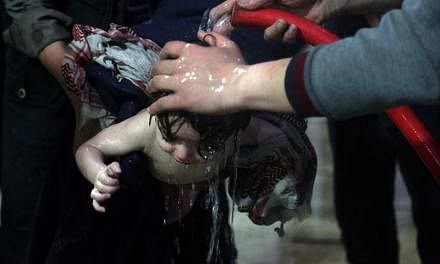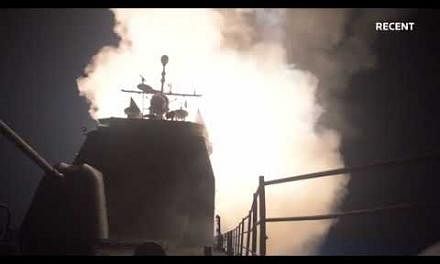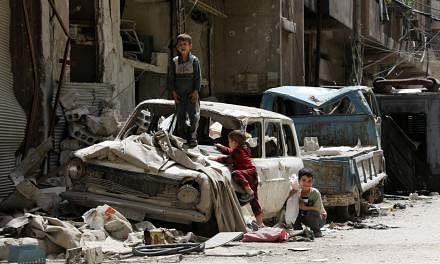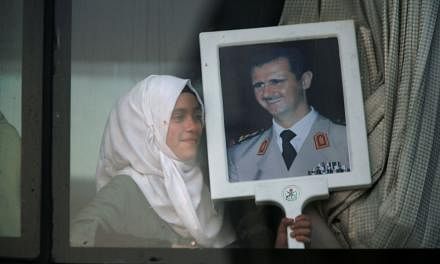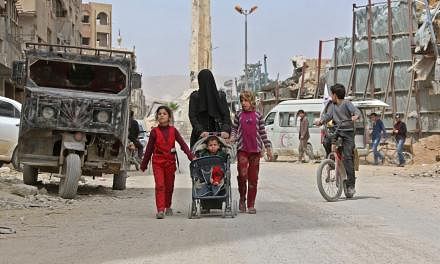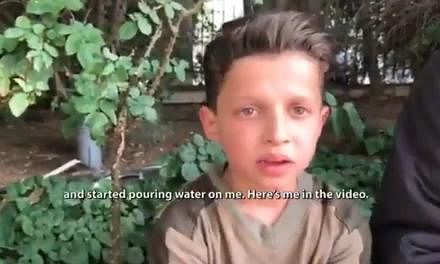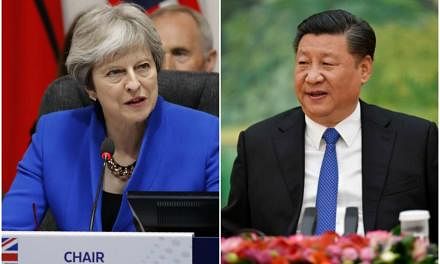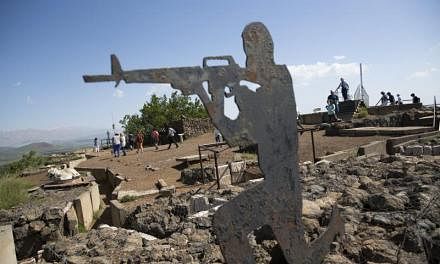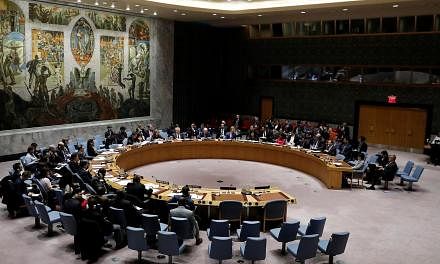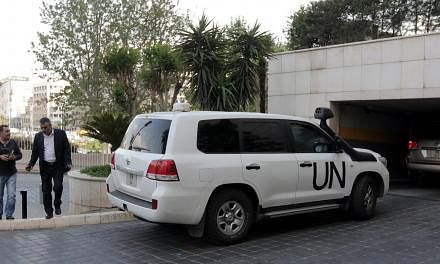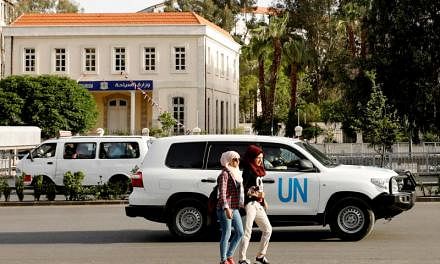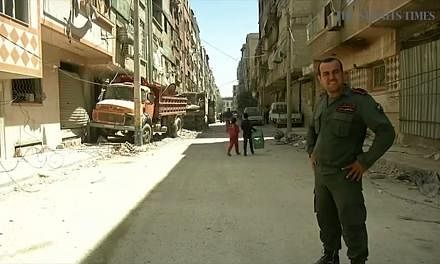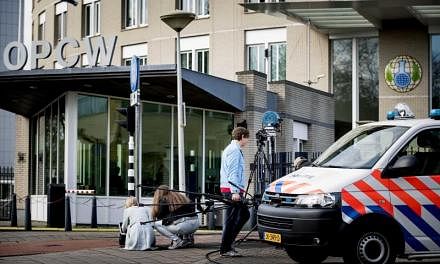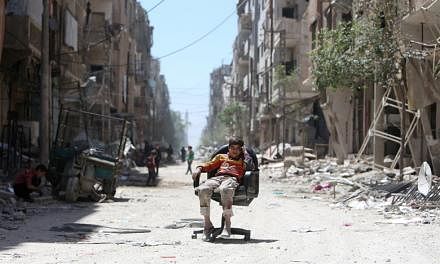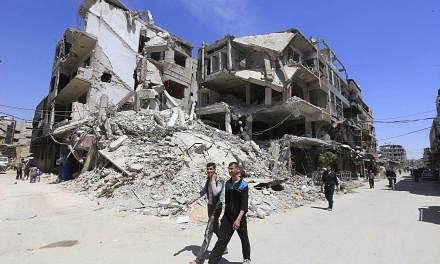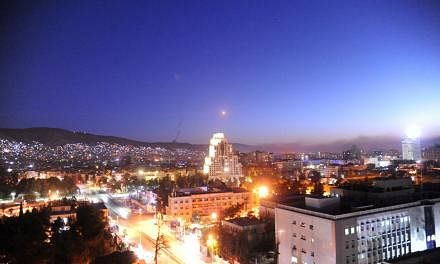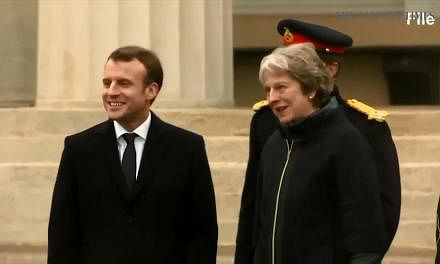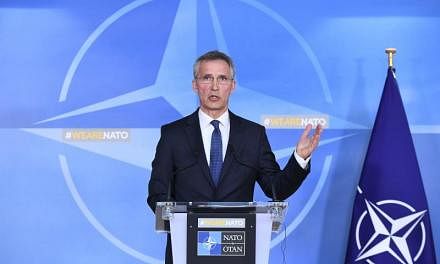DAMASCUS - Dozens of Syrians choked to death after a suspected chemical attack last week struck the rebel-held suburb of Douma, east of Damascus.
A bomb containing toxic gas was allegedly dropped at dusk on April 7.
Photos and videos later shared on social media, including by activists and rescuers, showed piles of bodies on the floors of shelters and entire families lying dead. Their mouths and noses were covered with foam.
Other videos showed victims including children being treated for breathing problems and hosed down.
Doctors and aid organisations on the ground reported strong smells of chlorine, and described symptoms consistent with exposure to sarin, a nerve agent.
Medics and rescuers said the alleged chemical attack killed more than 40 people and injured hundreds.
Both the regime of Syrian President Bashar al-Assad and ally Russia have denied responsibility.
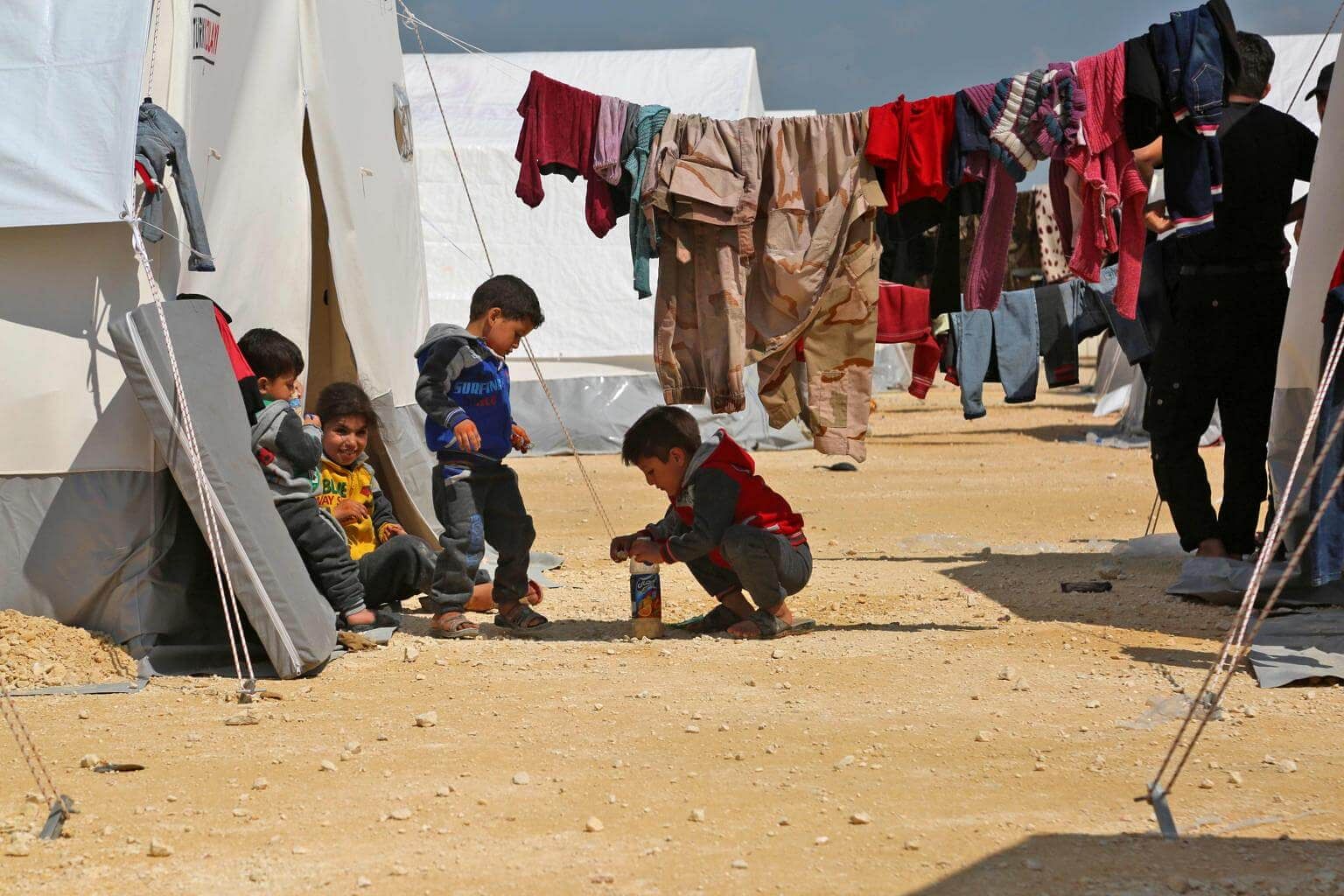
Here are accounts from survivors of the alleged chemical attack, medical workers, and those displaced during the seven-year civil war.
MASA AND MALAZ, 7
The twin girls refused to leave behind their pink Dora the Explorer backpacks when they were evacuated from Douma last week, said their mother, Umm Nour.
Now at al-Bol refugee camp in Aleppo province, Malaz unzipped her backpack and pulled out a cardboard box. It contained a little blonde doll.
"She spoke to the doll, telling her, 'you might suffocate but you will be safe from the bombing'," said Umm Nour, adding that her daughter's voice was filled with sorrow when she said that.
"Yesterday, they were playing, they were digging a trench, a tunnel for the ants outside our tent," Umm Nour told CNN. "They told me it was so the ants could have a place to hide and stay safe if there was an attack."
The twins said they want to be doctors when they grow up so they can save wounded children.
Referring to the popular uprising of March 2011, which later spiralled into civil war, Umm Nour said of her daughters: "They were two months old when the revolution began. What have they seen in life, what do they know that is pure or kind?
"All they have seen is blood, the dead, the wounded."
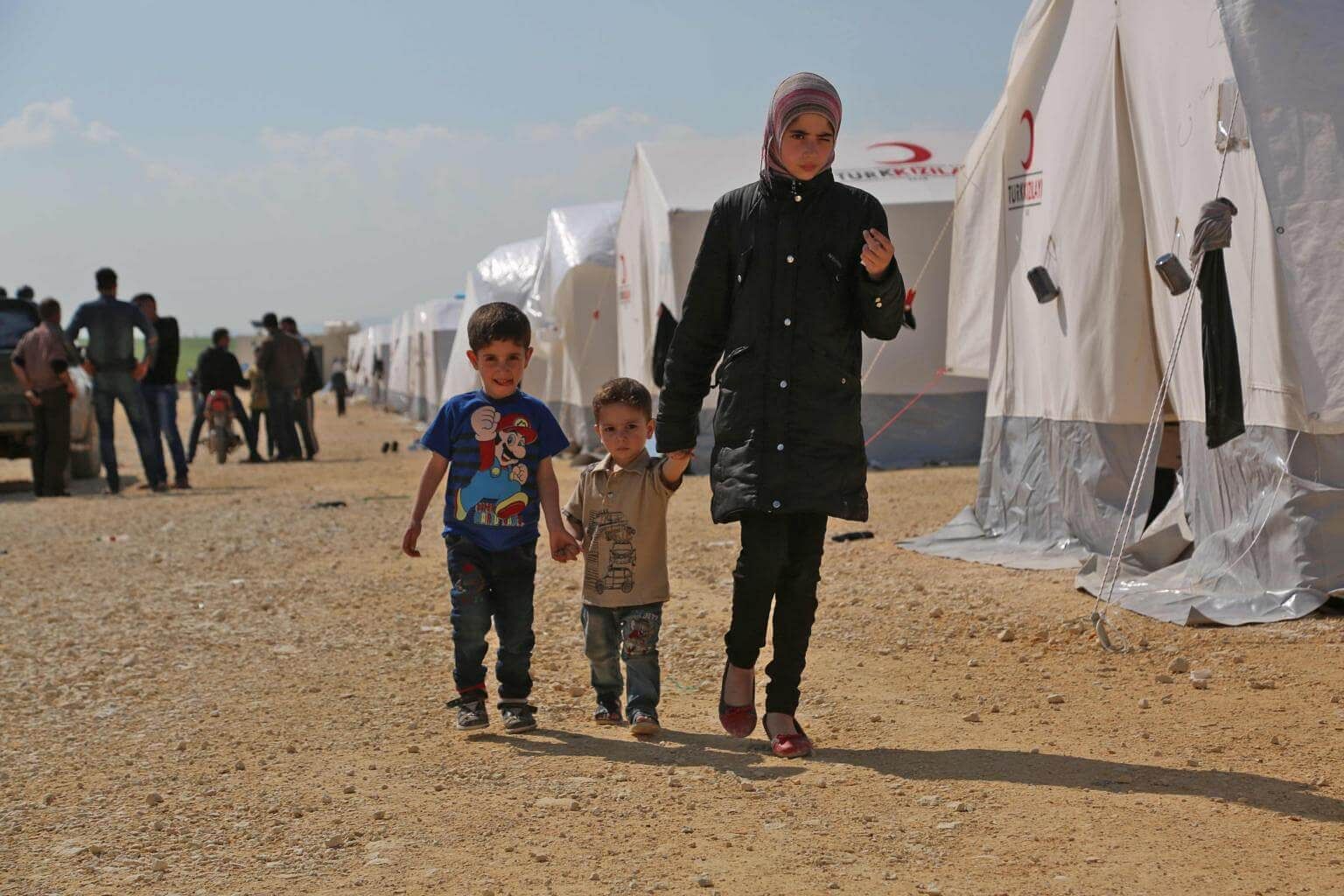
ABU MOHAMMED, 51
"I was coming up the stairs from the basement and got an indescribable tightness in the chest, inability to breathe, and headache...I went back downstairs and started splashing water on myself, wiping my face, and splashing more water."
MALAK, 18, AND WALID DERVISH, 23
"When the smell hit us, we threw up. My mouth filled with phlegm. I couldn't stop coughing," said Malak, who was underground when the alleged chemical strike happened.
"We got to a clinic, where they hosed us with water and gave us oxygen."
Holding up the key to his house in Douma, Malak's husband, Dervish, said: "I brought it with me. Maybe one day we will be able to go back."
They have two children, three years old and four months old.
MEDICAL STUDENT AT A HOSPITAL
"His pupils were dilated and he had foam in his mouth. His heart was very slow," the medical student said of a man he treated.
"Then he coughed blood into his mouth as well. I could see he was going to die."
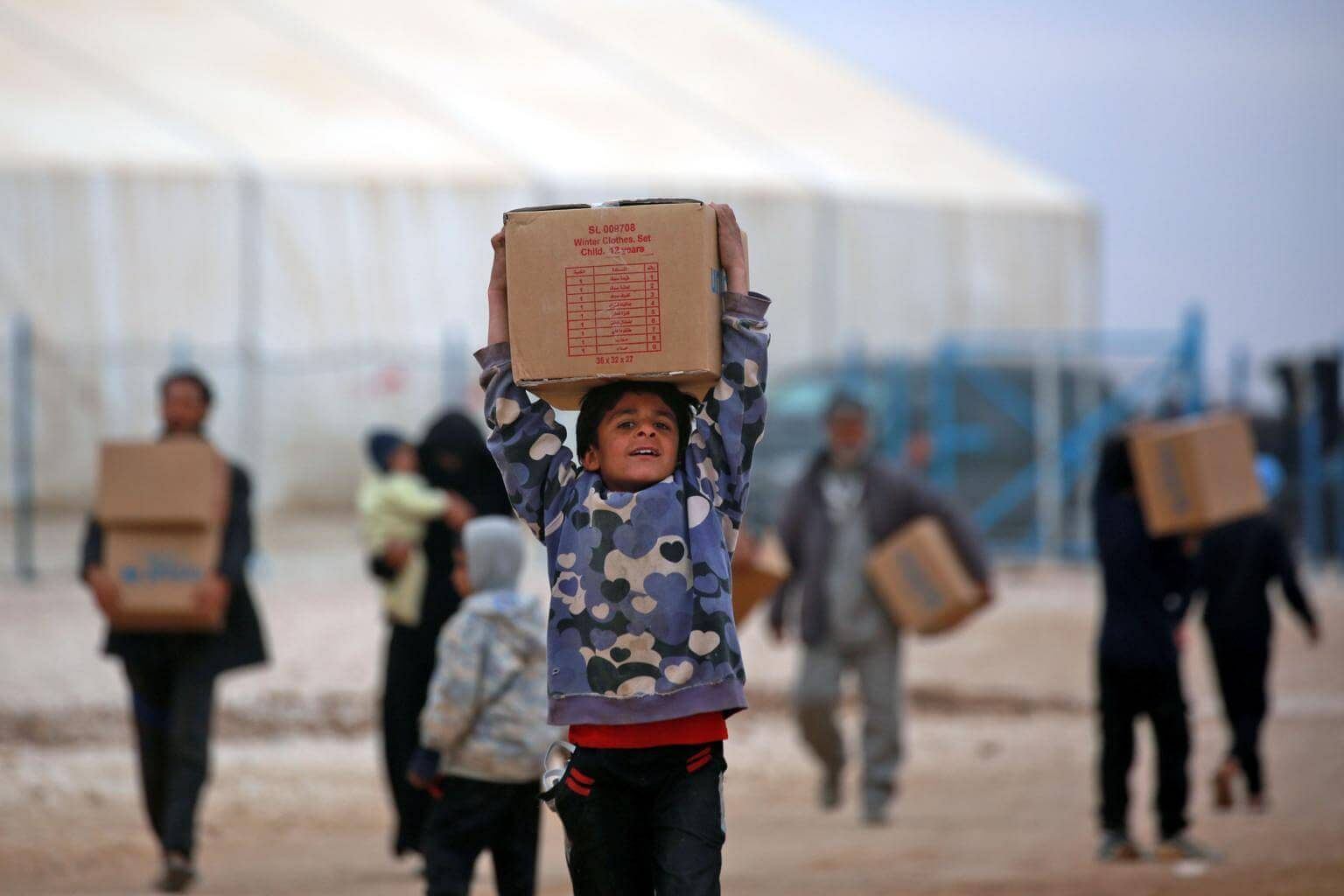
UMM NOUR
"I felt my throat close, my body go limp as if I had just had everything sucked out of me," said Umm Nour, who was with her family in a basement when the toxic rounds hit.
When she and her twin daughters reached the fourth floor, their building was shelled.
"It was like we were between two deaths - the chemical attack on the lower floors and the other strikes hitting the upper ones," she recalled.
Z, VOLUNTEER SURGEON AT AL-AMAL HOSPITAL
"What really got my attention was...this little boy who was hit by a sniper. So there's somebody out there who had the ability to look through a telescope, and knew he was shooting a 12-year-old boy," said the surgeon, who declined to give his name.
"There were times when they aimed for pregnant women, and aimed to shoot the baby. What were the political affiliations of those children in the womb? What kind of threat were they to anybody?"

DR HISHAM BISMAR
"The thing which... affected me the most was seeing the children. When it starts affecting children, that's where I draw the line," said the Syrian-American doctor at the al-Amal Hospital in Turkey, near the Syrian border. He is based in the United States and travels to Turkey to volunteer as a surgeon at the hospital.
"I think in this war you have a whole generation exposed to massive trauma. It's going to affect how they grow, how they think."
MAHMOUD, 15
"I was young when we fled. My father said we used to live a normal life in Syria. I wish I could remember it," said the teenager. He has been living in the Zaatari refugee camp in Jordan for five years.
LAILA BAKRI
"Our children, who were born during the war, know nothing about what normal life would look like," said the activist in Eastern Ghouta in Syria.
"They do not know the different types of fruits. My daughter has never tasted bananas - she can only distinguish between the sound of warplanes and bombs."
SOURCES: AGENCE FRANCE-PRESSE, AL JAZEERA NEWS, BBC, CNN, NYTIMES, REUTERS, WASHINGTON POST




